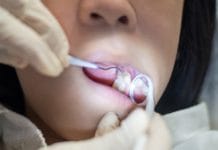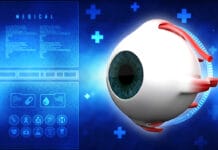Dental hygiene is a career with reasonable hours, good pay, and a favorable work-life balance. This is what drew me and others into the profession.
However, before I ever stepped foot into a dental hygiene school clinic and picked up a scaler, numerous practicing hygienists told me that this was a “15-year career.” I did not believe them. I couldn’t fathom why anyone would leave the profession when all I saw were the perks. It wasn’t until I began working full-time, seeing 8-plus patients a day, coming home with aches all over my body, and reaching a point of burnout that I truly realized the depth of the term “15-year career.”
As hygienists, we constantly expose our bodies to abnormal bending and twisting, which can increase the risk for musculoskeletal disorders and prematurely end a career we worked so hard for.1-3 As preventive specialists, we understand the importance of consistency in maintaining our health.
There are many ways to invest in yourself. Whether you’re investing money or time, physically or emotionally, this investment is absolutely essential in our profession. This is especially important for new dental hygiene grads or students, because the earlier you start, the less the likelihood of developing burnout or injury.1-3
Here are four ways to invest in yourself to help prolong your career.
1. Invest in the health of your body
Investing in your physical health and finding time in your day to exercise is essential for ensuring career longevity. Whether you have a gym membership, take yoga classes, or simply make time to stretch and move your body at home, you are making yourself stronger, which can help prevent injury.1-3 You can also go even further and work with a physical therapist to guide you on perfecting your posture and ergonomics.1 Find something that works for you and stay consistent with it.
2. Invest in good-quality, ergonomic equipment
Investing in good-quality, ergonomic equipment will allow for less strain on your neck, shoulders, and back, and can help prevent injury to your wrists and hands.1-3 Using instruments with lightweight, wider handles and sharp blades can help reduce muscle fatigue and strain.2,3 Ergonomic loupes and a headlight, for example, can completely change the way you practice, allowing for better posture and less reaching for the overhead light.2
Another piece of equipment that can help your posture is a saddle stool.1 Saddle stools help promote healthy working postures by supporting the natural curve of the lower back (lumbar lordosis) and improving shoulder and neck alignment.3 Even if your office does not provide you with a saddle stool, it is worth the investment if it helps prevent back pain. Ultimately, it is up to us to prevent injury and prolong our careers!
3. Invest in your continuing education
Investing in your continuing education (CE) can inspire you and rejuvenate your passion for your career. CE hours are something we have to do anyway, so why not use them to our advantage? Attend weekend courses to learn and network with other dental professionals. Being excited about learning can refresh your sense of self and give you the motivation to improve to be the best provider you can be.
4. Invest in the time between patients
Investing in your time spent between patients can be tricky. I still find myself running behind and struggling to catch my breath. On busy days, it can be challenging to prioritize the health of our bodies. When you’re running behind schedule, you don’t know whether to go to the bathroom or chug some water in the breakroom. Investing in those fleeting minutes between appointments allows you to take care of yourself, whether by drinking water, stretching, or catching a breath.
Preparing ahead of time can help make those fleeting minutes available. To minimize time spent setting up operatories, consider making trays in the morning with everything needed for appointments and ensuring your room is fully stocked before the day starts. Something as simple as reviewing charts in the morning can also save you time on a busy day. For example, reviewing charts can help identify outstanding treatment needs or treatment considerations.
In Closing
I firmly believe that it is okay to prioritize self-care, even when running behind, because we are not machines. Never be afraid to take a moment for yourself so that you can provide the best possible care for your patients. Whether you try some or all of these things, I hope you can be inspired to be mindful of your well-being. By taking care of ourselves, we can continue to provide the care that helps our patients achieve better oral and overall health.
Before you leave, check out the Today’s RDH self-study CE courses. All courses are peer-reviewed and non-sponsored to focus solely on high-quality education. Click here now.
Listen to the Today’s RDH Dental Hygiene Podcast Below:
References
- Saccucci, M., Zumbo, G., Mercuri, P., et al. Musculoskeletal Disorders Related to Dental Hygienist Profession. Int J Dent Hyg. 2022; 20(3): 571-579. https://pmc.ncbi.nlm.nih.gov/articles/PMC9543870/
- Kaviandost, P., Vyas, S., Chileveru, K., et al. Posture, Precision, and Prevention: A Comprehensive Review of Dental Ergonomics. Saudi J Oral Dent Res. 2025; 10(5): 248-254. https://saudijournals.com/media/articles/SJODR_105_248-254c.pdf
- Sandoval-Alarcón, S., Bäumle, R., Castellucci, H.I. Impact of Ergonomic Interventions on Musculoskeletal Health and Work Performance in Dentists and Dental Students: A Scoping Review. Appl Ergon. 2025; 129: 104602. https://pubmed.ncbi.nlm.nih.gov/40700983/










